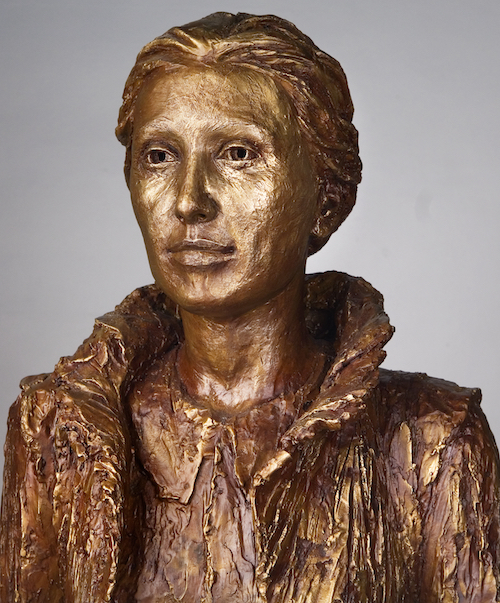Mary Ward’s passion and courage stirred her to live and speak the truth with fearless conviction.
In that spirit we are sent on mission at the service of the Church.
– IBVM Constitutions Vol II 2.4
Pioneer for Women in the Church

Over 400 years ago, Mary Ward, the founder of the Institute of the Blessed Virgin Mary, was born into a world of turbulence. Mary spent her life following God’s guidance in seeking something new. She envisioned a religious community of women who were not cloistered, had no specific religious dress, and were free to bring God’s love wherever there was need. How contemporary her foresight was in championing women’s role in spreading God’s compassion. This is her story.
Mary Ward was born into a devoted Catholic family in Yorkshire, England in 1585. She grew up during the time when English Catholics were being persecuted for their faith. At age fifteen, she felt called to become a religious and left England to join the Poor Clares. After one year, Mary learned God had other plans for her and she left the Poor Clares. She worked in disguise to preserve the Catholic Faith before founding a community of active sisters in 1609 at St. Omer in present-day Belgium. Without cloister, she and her companions educated young women, helped persecuted Catholics, and spread the word of God in places priests could not go. The Sisters lived and worked openly on the continent, but secretly in England to nurture the faith.
Many who knew her, admired her courage and generosity. She traveled Europe on foot, founding schools in the Netherlands, Italy, Germany, Austria, and in today’s Czech Republic and Slovakia. Her efforts to expand the role of women in spreading the Catholic faith were criticized and maligned. Church officials called her a “dangerous heretic” and imprisoned her. Mary Ward died in York, England, in 1645. To the end, she trusted what God had asked of her would be accomplished in the future.
To Mary, God was the “Friend of all friends.” She lived her fidelity with cheerfulness and a passion for truth. What may seem to us ordinary was startling in her time. She sought to empower women to fulfill whatever part God called them to play. Mary and her companions established free schools, nursed the sick and visited prisoners. Even her Protestant neighbors attested to her love for the poor and her perseverance in helping them. Her concept of freedom for her community, externally from cloister, choir, habit, and rule by men, and internally in the ability to “refer all to God”, enabled her to live undeterred by adversity, never deviating from the way God called her. She invited her followers to “become lovers of truth and workers of justice.”
It wasn’t until 1909 that the Church finally recognized Mary Ward as the founder of the Institute of the Blessed Virgin Mary. In 2009 she was declared Venerable and a woman of “heroic virtue”. The Cause for Venerable Mary Ward continues today.
Mary Ward was a pioneer for women’s role in Church ministry and a woman ahead of her time in shaping apostolic religious life as we know it today. Mary Ward expected much and believed with all her heart that, “Women in time to come will do much”.
A sculpural Portrait of Mary Ward. Bronze cast. Artist: Melissa Judge, 2006 Australia.ard. Bronze cast. Artist: Melissa Judge, 2006 Australia.
The Painted Life
Fifty large oil paintings, depicting the spiritual journey of Mary Ward are on display in “Mary Ward Hall” in Augsburg, Germany. There is very little known about the origins of these paintings but it is believed they were painted in the 17th century by various artists. These treasures were most likely commissioned by Mary Ward’s earliest followers.
Take an online journey with the paintings and learn more abut Mary Ward.
